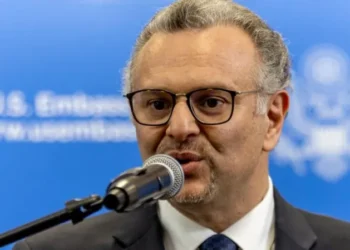Angola on Thursday suspended the pay of doctors who launched a strike last week to demand better wages and medical supplies.
Labour Minister Teresa Dias told reporters that the government won’t pay the salaries of the striking doctors.
Doctors went on strike on March 21, for the second time in four months. The last strike in December lasted five days.
Doctors say government has failed to follow through on promises made after the December protest.
The union called that strike after 20 children died in a single day at Luanda’s paediatric hospital.
The union’s president Adriano Manuel was sacked for drawing attention to the deaths, which he blamed on inadequate supplies and medicines at the hospital.
The government had agreed to give a six-percent raise to basic salaries, expanded overtime and added benefits. But doctors say they still face acute shortages of medications, and accuse the government of building new facilities without providing staff to run them.
Most of Angola’s 5,610 doctors are believed to have joined the strike. About a quarter of them remained at work to maintain minimum staffing to respond to emergencies and tend to critically ill patients.
Miguel Sebastiao, secretary general of the Angolan National Doctors’ Union, said the strike would continue despite the suspension of pay.
“As the doctors’ union, we’re simply calling for better salaries and an improvement in our working conditions.
“The medical corps is still serving essential services emergencies, intensive care units and others,” he added. Those services continue to operate.” he said.
Resource-rich Angola, a large central African country with 33 million inhabitants, struggles with high poverty rates despite its oil wealth. The country has fewer doctors as a proportion of its population than impoverished Haiti or war-ravaged Afghanistan, according to the World Bank.



































